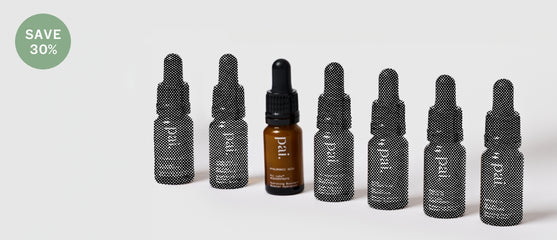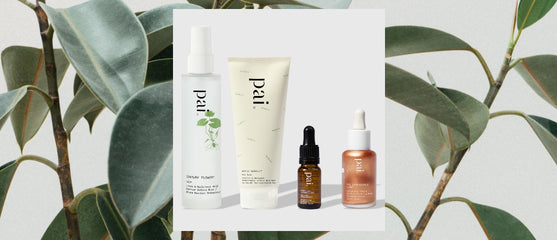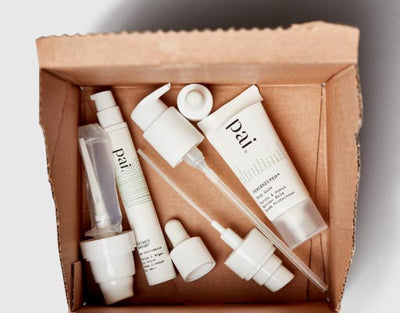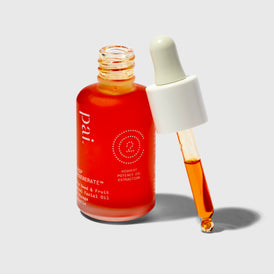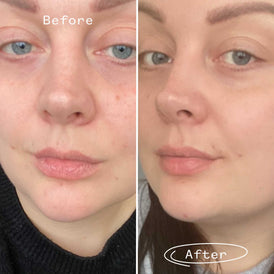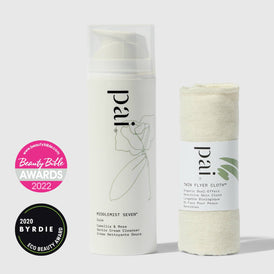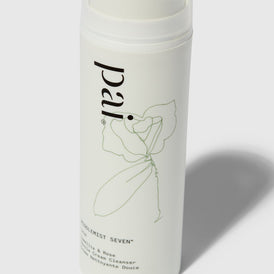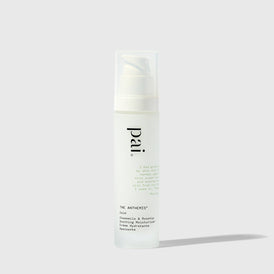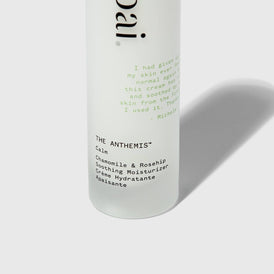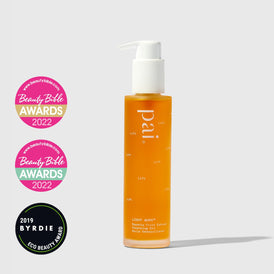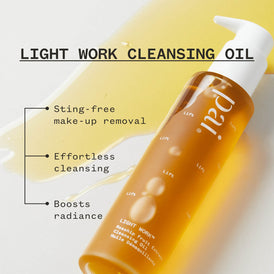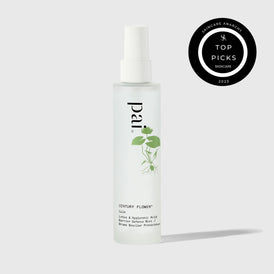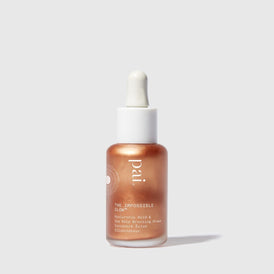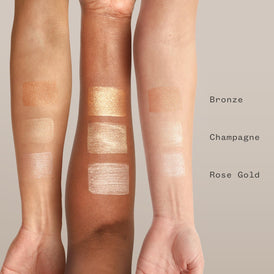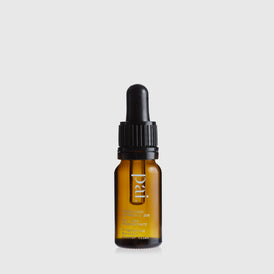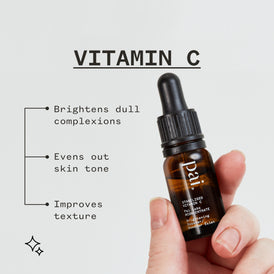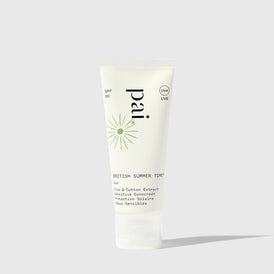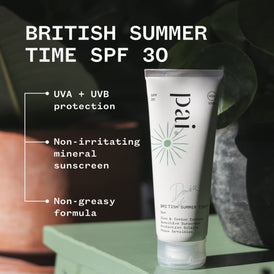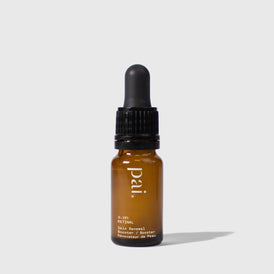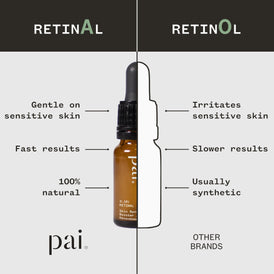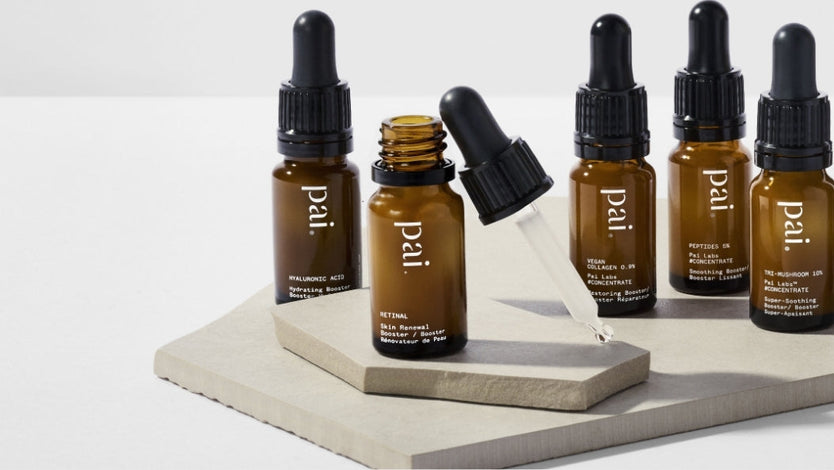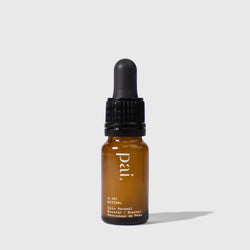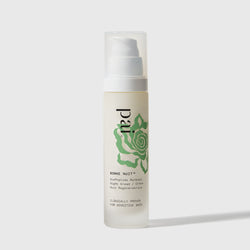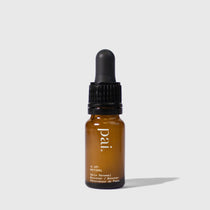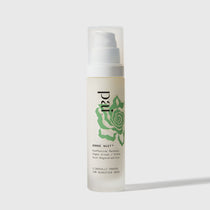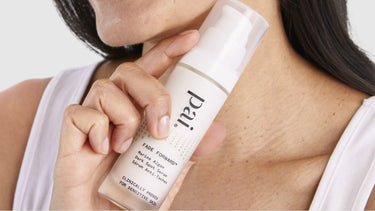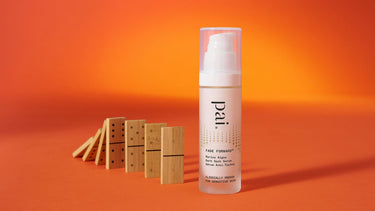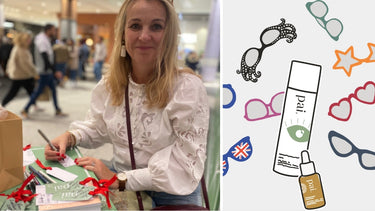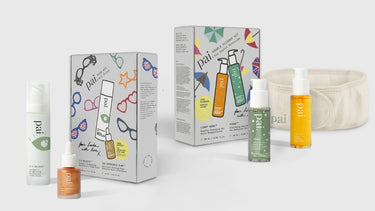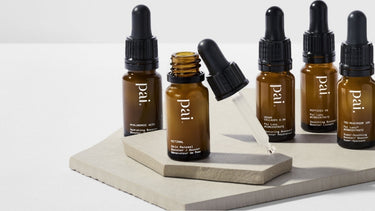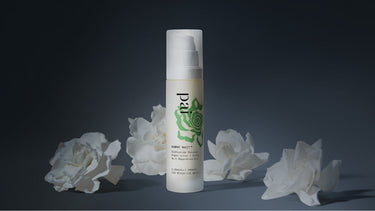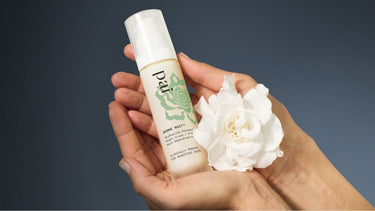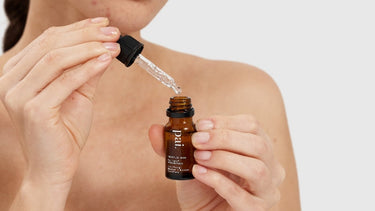Friends, this one has been a long time coming. We’re so pleased to finally bring sensitive skin a retinoid it can trust. Our Retinal 0.16% Skin Renewal Booster is made with one of the first COSMOS-certified natural Retinals on the market – and it was so worth the wait.
Here’s everything you need to know about this groundbreaking active and how to use it for smoother, younger-looking skin.
What are retinoids?
Skincare aficionados will be more than familiar with retinoids already. Retinol being the poster child for the category. But for the uninitiated, here’s a breakdown of what they are, their skin benefits and how they work.

Retinoids are a form of Vitamin A. They’re active ingredients that encourage the skin’s cells to turnover. Or put simply, out with the old and in with the new. Most people use retinoids because they’re considered the gold standard for improving the visible signs of ageing and the appearance of fine lines and wrinkles.
But the way they speed up skin regeneration means they’re also incredibly beneficial for improving firmness, as well as reducing acne, pigmentation and of course dullness. And the Retinal in our booster does just that, and more.

No, that's not a typo. It’s Retinal with an A.
We didn’t choose Retinol, because it’s not the right choice for sensitive skin. Instead, ours is the lesser known but faster-working Retinal. And here comes the science.
When Retinol is applied, our skin cells work to convert it into Retinoic Acid, which has been proven to have benefits for skin health, particularly when it comes to the signs of ageing.
But during that conversion, there’s a middle step - where Retinol becomes Retinal (also known as a Retinoic Acid precursor). And those steps along the ingredient’s journey is where irritation occurs – and the reason why most people with sensitive skin avoid retinoids in the first place.

Even if your skin is pretty robust, there’s often a ‘break-in’ period with Retinol where you might experience redness, peeling or dryness. If you have sensitive skin then you are more susceptible to these kinds of reactions due to a compromised skin barrier.
By skipping straight to Retinal, it has fewer transformations to go through, and less interaction with the skin – meaning you get all the cell turnover benefits, without the worry of reactions. Enter, our first Retinal booster.
Retinal (also known as Retinaldehyde) has gained popularity in recent years, but it’s usually synthetic – until now. We’ve used a biologically active vitamin A derivative sourced from pink salt lakes that’s fully COSMOS approved.
On top of that, we’ve cushioned it with Prebiotic Inulin – a protective hug for your skin that keeps its barrier feeling strong. And of course like all of our products, it’s clinically proven for sensitive skin using a rigorous 96-hour patch test that’s verified by dermatologists.
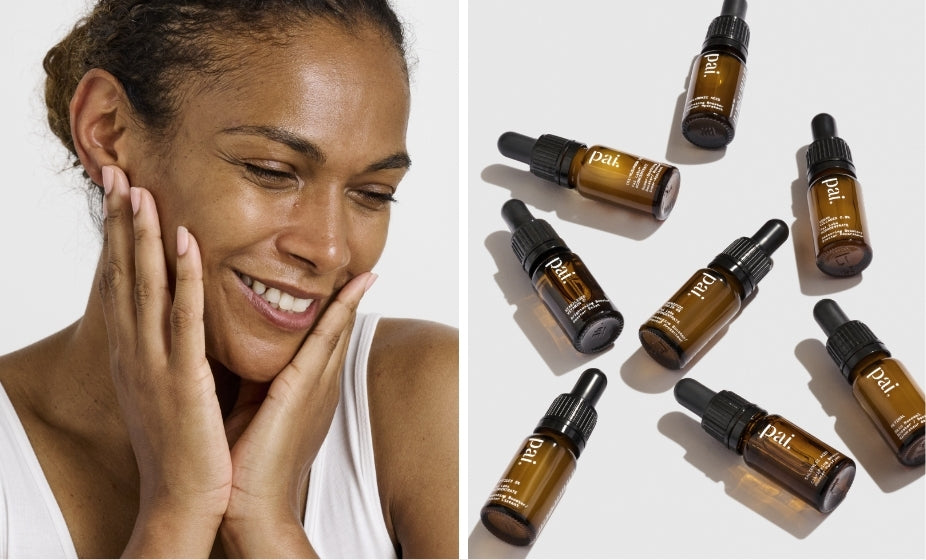
How and when to use Retinal
Our Retinal is part of a larger range of boosters – highly-concentrated doses of active ingredients – which includes the likes of Collagen, Hyaluronic Acid, Vitamin C and Salicylic Acid. And the magic of these dynamic drops is that they put you in full control. Rather than change your daily routine, you can add the active ingredient to your existing skincare to deliver all the benefits, on demand.
We recommend using your Retinal before bed, adding 1-2 drops to your favourite moisturiser, serum, or even better our Bonne Nuit BioPeptide Renewal Night Cream – mixing together in your hand before applying.
You can also apply 1-2 drops directly to dry cleansed skin like you would a serum, then follow with the rest of your evening routine. And because Retinal encourages the skin cells to replenish and shed, it’s important to wear plenty of SPF each morning to protect the new skin as it’s revealed.
If you’re extra sensitive, start by using it once or twice a week and build it up gradually so your skin can learn to love it – and be sure to use a gentle, comforting routine to support it along the way.
Shop our new Retinal 0.16% Skin Renewal Booster here
